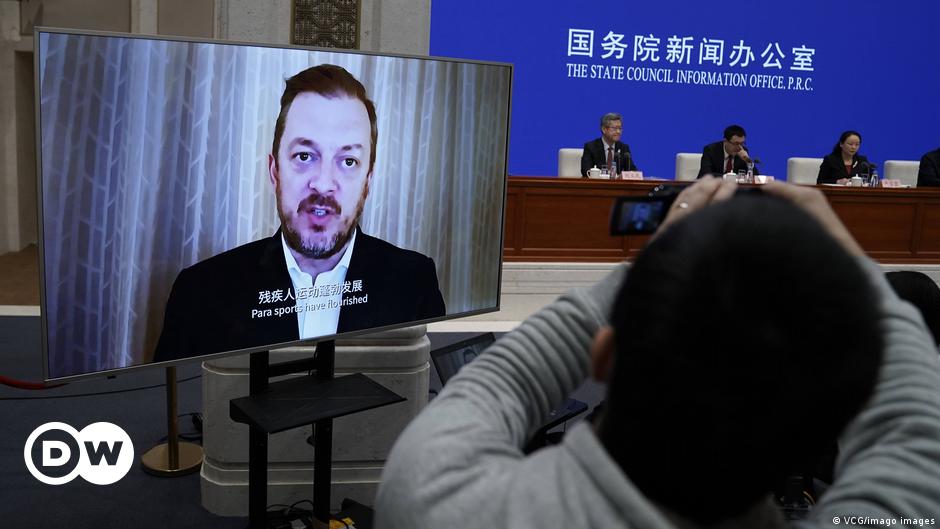
Russia’s invasion of Ukraine last week has united the world of sports like no other event in recent history.
In the days following the call by the International Olympic Committee (IOC) for sports federations to bar athletes and officials from Russia and Belarus from competition, as well as FIFA’s and UEFA’s joint decision to suspend Russia, attention is now turning to the International Paralympic Committee (IPC).
Pressure has also come from the Global Athlete movement, which has called both on the IOC and the IPC to impose “strong sanctions” on Russia.
“Your lack of action will send a message to every athlete in the world that you have chosen Russia and Belarus interests over athlete interests. Your legacy will be defined by your actions,” the Global Athlete movement wrote in an open letter.
So just days before the Winter Paralympic Games open in Beijing, the IPC, led by its president, Andrew Parsons, will be forced to make some tough decisions at a board meeting that’s been scheduled for Wednesday.
Speaking to DW from Beijing around 24 hours before that meeting, the IPC president refused to be drawn on whether the organization would follow suit with other international sports governing bodies and ban Russian athletes from taking part in the Paralympics, which kick off on Friday.
“The guiding principle will be, as always with the International Paralympic Committee, our constitution,” Parsons said.
“We need to respect our constitution, the fundamentals of law and the values we stand for [courage, determination, inspiration and equality]… It wouldn’t be fair for me as president to express publicly my own opinion, because I think what is important here is the decision that will come out of the meeting.”
The Brazil-born IPC president also stressed that the 13 board members, eight of which are current or former athletes, understood the “magnitude of what is happening around the world, specifically in Ukraine with the war. So we understand our responsibility as well.”
At the same time, Parsons dismissed the notion that a possible decision to ban Russian athletes from competing in Beijing was made any more complicated by the fact that the Games are in China, which is thought to remain friendly with the regime of Vladimir Putin.
“No,” the IPC president said. “The decision is up to the IPC and not to anyone else.”
Asked about criticism of China’s human rights record, regarding the treatment of Uyghur Muslims among others, Parsons deflected the question. Instead, he pointed to what he said was a marked improvement in the situation for people with disabilities in the country, in the 13 years that have followed the 2008 Summer Paralympics in Beijing.
According to IPC President Andrew Parson, China has invested heavily in improving opportunities for disabled athletes
“With the (Summer) Games in 2008, we changed forever, the way people with disabilities are perceived in the country,” he said.
“Even the official reports from the Chinese government at that time suggested that the perception of disabled people was mostly associated with beggars on the streets. Since the 2008 Games, disabled people are perceived more as athletes, from the basketball player to the judoka.”
While he conceded that “perception is difficult to quantify,” he cited an official Chinese government figure that suggests that while just 10,000 people in the country (athletes and support staff) were involved in Winter Paralympic sports five years ago, this number has since grown to around 300,000.
“These numbers show that (the Chinese authorities) are investing and offering opportunities for more people with disabilities,” Parsons said. “We always say, people with disabilities don’t need to be overprotected, they need to be given the opportunities. And I think it’s what China is doing.”
Finally, asked about possible concerns for the athletes’ safety as COVID-19 continues to rage two years into the pandemic, Parsons said that “all the research that we have shows that they (Paralympians) are not more likely to contract the virus (than Olympic athletes).
“But of course, depending on the type of disability and the level of disability, the consequences can become more severe. So the medical response can be different. But because of all the countermeasures, this is probably the safest place on Earth. We are very confident the numbers will remain really low.”
Edited by: Mark Meadows








